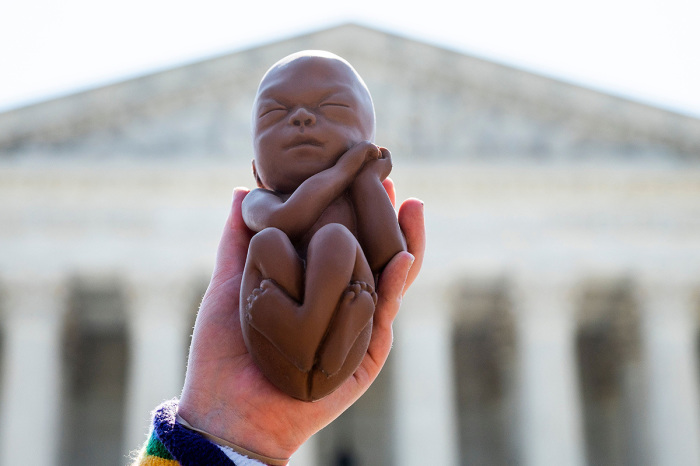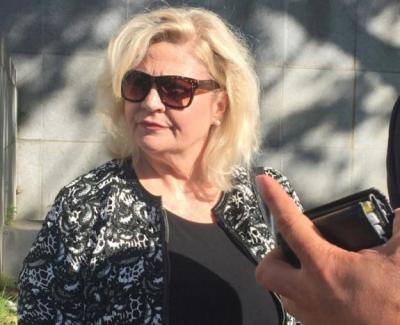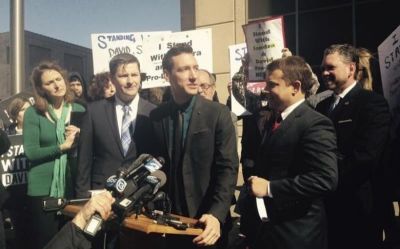Supreme Court lets rulings against undercover pro-life activists stand

The United States Supreme Court has refused to hear the appeals of multiple pro-life activists who are facing heavy fines for releasing undercover videos showing Planned Parenthood employees discussing the harvesting of baby body parts for profit.
The pro-life activist group known as the Center for Medical Progress garnered national headlines in 2015 when it released a series of undercover videos that showed Planned Parenthood officials and other abortion providers discussing illegal activities, such as altering the way an abortion procedure is performed to acquire a baby's organs, tissue and limbs in tact.
In an orders list released Monday morning, the high court declined to hear the combined cases of Center for Medical Progress et al v. National Abortion Federation and Steve Cooley et al v. National Abortion Federation.

Additionally, the Supreme Court declined to hear the combined cases of Troy Newman v. Planned Parenthood Federation et al, Sandra S. Merritt v. Planned Parenthood Federation et al. and Albin Rhomberg v. Planned Parenthood Federation et al.
The refusal to hear the appeals allows earlier court rulings against the pro-life activists to stand, which could result in the activists being forced to pay millions of dollars in damages.
Liberty Counsel, which is helping to represent Merritt, released a statement on Monday warning that the refusal to hear the cases has “far-reaching First Amendment consequences involving free speech and undercover journalism.”
The legal group then quoted from its petition to the Supreme Court, in which they asked if “the First Amendment’s Free Speech Clause protects newsgathering journalists, who operate under an alias to document and expose what they reasonably believe to be unlawful conduct, from being subjected to punitive liability for ‘fraud.’”
“This case concerns whether, and to what extent, the press may raise the First Amendment as a defense against generally applicable tort laws when undercover journalists gather and publish truthful news of significant public importance,” they added.
Since releasing the undercover videos, the CMP activists have found themselves dealing with a wave of litigation from Planned Parenthood and the NAF, who have accused the pro-life group of selectively editing the videos and violating confidentiality agreements. However, CMP also publicly released the videos in their entirety and were reviews by The Christian Post at the time.
In April 2020, U.S. District Court Judge William Orrick of the Northern District of California ordered CMP, its founder David Daleiden, and others tied to the group to pay over $1.2 million in damages related to Racketeer Influenced and Corrupt Organizations Act, arguing that CMP violated the California Business & Professions Code.

Last October, a three-judge panel of the United States Court of Appeals for the Ninth Circuit unanimously upheld a lower court ruling requiring the activists to pay $2.4 million in damages.
Ninth Circuit Judge Ronald M. Gould, a Clinton appointee, authored the panel opinion, rejecting the argument that the pro-life activists’ actions were protected by the First Amendment and journalistic practices.
“Invoking journalism and the First Amendment does not shield individuals from liability for violations of laws applicable to all members of society. None of the laws Appellants violated was aimed specifically at journalists or those holding a particular viewpoint,” wrote Gould last year.
“The two categories of compensatory damages permitted by the district court, infiltration damages and security damages, were awarded by the jury to reimburse Planned Parenthood for losses caused by Appellants’ violations of generally applicable laws.”
The CMP activists were also the subject of prosecution from the state of California, in a move that brought concern from many, including the editorial board of the Los Angeles Times.
In a 2017 editorial, while not agreeing with the CMP’s claims, the LA Times editorial board expressed concern over the proceedings, believing that then California Attorney General Xavier Becerra was engaging in "a disturbing overreach."
"It's disturbingly aggressive for Becerra to apply this criminal statute to people who were trying to influence a contested issue of public policy, regardless of how sound or popular that policy may be," stated the editorial board at the time.
"Planned Parenthood and biomedical company StemExpress, which was also featured in the videos, have another remedy for the harm that was done to them: They can sue Daleiden and Merritt for damages. The state doesn't need to threaten the pair with prison time."



























